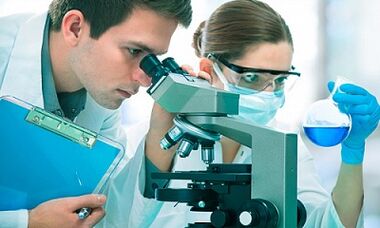
According to the WHO, more than 4 billion people on Earth suffer from parasites. Such mass infection is explained by underestimation of the problem, insufficient education of the population, effective diagnosis and treatment of patients.
All parasites that can cause disease in humans can be divided into three major groups:
- Protozoan or Protozoa. There are several species, but only a few are widespread in the world - lamblia, toxoplasmosis, Trichomonas.
- Worms or helminths. In the CIS countries, roundworms, pinworms, toxocaras, trichinella, tapeworms of pigs and cattle, echinococcus, flies, etc.
- Ectoparasites (external parasitism) - lice, ticks with head lice.
It is very easy to see the human body infected with parasites from the latter group, but protozoa and worms are often a "surprise" for their "owners".
Why are parasites dangerous?
Most parasites live for a long time and actively multiply in the human body, so the diseases they cause take a chronic, recurrent path. In this case, the affected organs stop functioning completely, immunity is reduced, and the patient becomes more susceptible to infections.
As a result, the body of a person infected with parasites becomes depleted, weakened, poisoned by parasitic toxins and becomes allergic. These processes, of course, do not develop at lightning speed, but being ignorant for years about the presence of a pest in the body and therefore the lack of treatment causes serious health problems.How can you be infected?
Knowing the main ways to get parasites is a chance to protect yourself and stay healthy. If we focus on pathogens common in the CIS countries, the list of possible ways of transmission of these parasites in humans will be as follows:
- From dirty hands.
- With dirty water (including bathing inside).
- Through unwashed vegetables and fruits.
- Through raw or undercooked meat and fish.
- Contact with an infected animal.
- Sexual intercourse (trichomoniasis is transmitted in this way).
How can a person be suspected of having a parasite?
Each parasite, respectively, is characterized by its localization in the human body or a specific clinic of the defeat of one or another organ. However, several symptoms can be distinguished that are common to all diseases caused by helminthiasis and protozoa.
Drunkness
Appearance is associated with the vital activity of the parasite in a person, the products secreted by him that poison the patient's body. It manifests itself in headaches, weakness, nausea, loss of appetite, irritability.
Allergy
It is a skin rash that is often visible and disappears and does not respond well to dermatological treatment. This can manifest itself as diathesis in infants. The origin of such evidence is also explained by the effect of parasitic toxins on the body. If a person is allergic, worm infections can cause more severe manifestations - swelling of the mucous membranes, attacks of bronchospasm, etc.
Weight loss
This symptom is especially manifested in children who are well-nourished, but do not gain weight, do not lose weight and at the same time appear overweight. The reason for the weight loss is again the competition for the patient's body to feed on worms.
Periodic hyperthermia
In addition, the temperature does not rise much - up to 37. 5. This occurs against the background of the absence of obvious symptoms of some kind of disease.
Intestinal Disorders
This is constipation and diarrhea, noise and pain in the abdomen in the abdomen. Often these symptoms are explained by the presence of dysbiosis and are unsuccessful treatment with antibiotics and bacterial drugs.
Anemia
Parasites in humans feed on it, so nutrients, micro and macro elements, as well as vitamins that the patient often consumes are not enough to meet the body's own needs. The first sign of such a deficiency is pallor of the skin and mucous membranes, iron deficiency in anemia, manifested by dizziness.
Changes in food choices, craving for sweets
These events can also be explained by certain nutritional deficiencies in the patient's body.
The appearance of these symptoms, and all at once, you should be alerted and see a doctor.
Diagnostics and protection methods
It should be noted immediately that alternative methods for detecting parasites in the human body (for example, the advertised Woll method) cannot be considered a reliable source of information. Therefore, you can only rely on microscopic examination of feces and numerous and specific blood tests for the presence of antibodies to individual worms and protozoa. The latter can be done in specialized laboratories.
To avoid becoming a victim of a parasite, a person should follow simple rules:
- Always and everywhere wash your hands with soap and water.
- There are only vegetables, fruits and herbs that have been thoroughly washed or better burned with boiling water.
- Do not drink raw water.
- Do not swim in muddy waters.
- Complete heat treatment of meat and fish products is mandatory.
- Wash children's toys periodically and disinfect the outside, for example, in a sandbox.
- Check your pet for parasites every year.
Parasitic drugs
Doctors recommend the prevention of worms twice a year with special preparations. However, it is impossible to prescribe such drugs to yourself or even a child, because they are all poisonous only to worms. Therefore, you should consult a doctor about the use and dosage of this or that drug.
If the presence of a parasite in the human body is confirmed, it is worth looking for a good parasitologist who will prescribe an effective treatment regimen, because taking a drug is usually not enough.
























